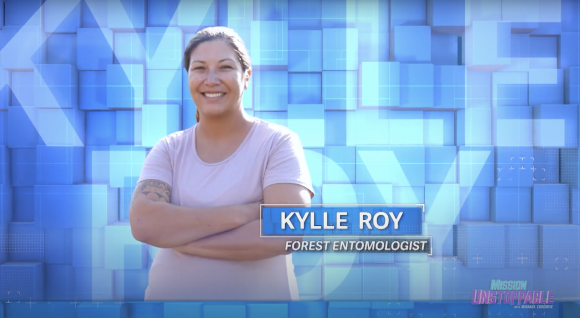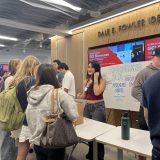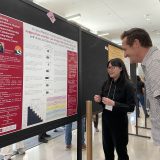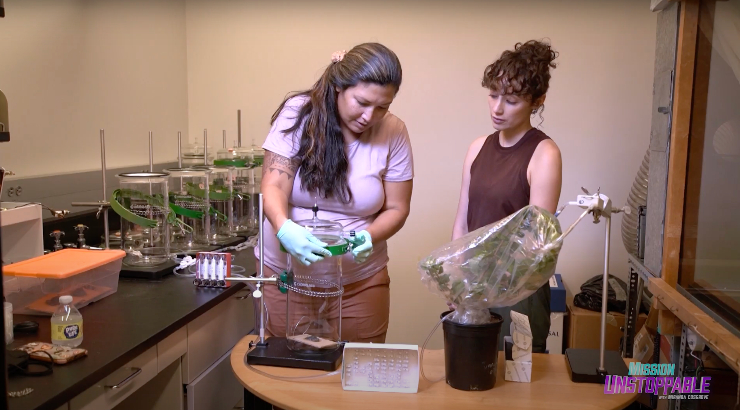
Chapman Environmental Science Aluma Featured Guest on CBS’s “Mission Unstoppable”
March 7, 2023
On February 11 — International Day of Women and Girls in Science — Chapman environmental science aluma Kylle Roy ’13 was a featured guest on CBS’s “Mission Unstoppable,” hosted by Miranda Cosgrove.
“Mission Unstoppable” is a television show highlighting inspiring female innovators in STEM (science, technology, engineering, and math) and their work and research to improve the world. Roy’s “Mission Impossible” episode, titled “Ecology, Eating, and Engines,” explores forest entomology, specifically, ambrosia beetles’ effects on native Hawaiian trees and rainforests.
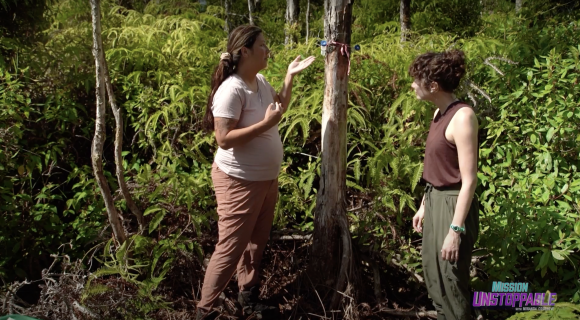
After graduating from Chapman with a bachelor’s degree in Biological Sciences and a minor in Environmental Science, Roy moved home to the Hawaiian Islands. She then began work as an entomologist at the Forest Service in Hilo, Hawaii.
“I am from the Island of Oahu, so it was a nice way for me to move home and live on the more affordable Hawaii Island,” Roy shares.
In 2015 Roy was awarded her master’s degree in Tropical Conservation Biology and Environmental Sciences at the University of Hawaii at Hilo.
Despite working in Dr. Jason Keller’s lab as an undergrad at Chapman, Roy discovered her passion for Entomology, the study of insects, during her time at the University of Hilo.
Roy recalls her experience in Dr. Keller’s lab, “I remember wanting nothing to do with them [insects] while my lab mates would give them baths and play with them…haha. I was apparently always destined to work with bugs!”
Roy is currently a Ph.D. candidate at Purdue University, studying insects in forest health and conservation and how to mitigate invasive species and diseases.
We asked Roy a few questions about her experiences at Chapman:
Q: Can you share about your involvements at Chapman and how they impacted your experience?
When I think about how I got to where I am today, it all goes back to Chapman. I started working in Dr. Keller’s Ecosystem Ecology lab after taking his Ecosystem Ecology class. I was so clueless about research and didn’t know it was a possible career path. Ironically, I remember asking his post-doc what a post-doc was. Dr. Keller had me develop a project that was both lab and field-based, and I just loved the balance of the two worlds, and it really set a precedent for my ideal career situation.
Q: How did Chapman prepare you for your career? For life?
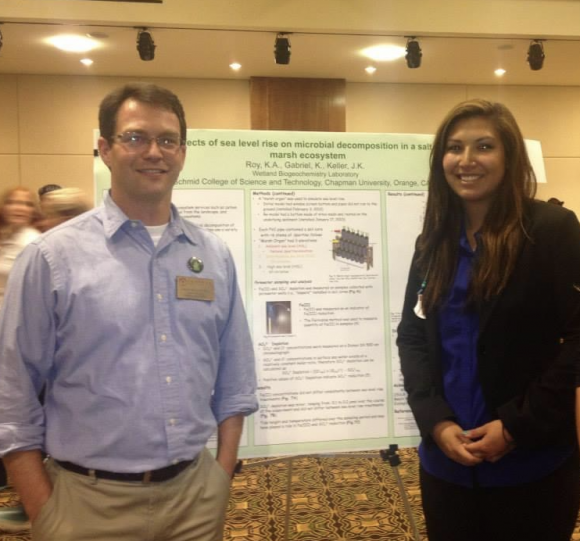
Working in a lab doing undergraduate research and studying abroad exposed me to the field of research and conservation, which has been pivotal for my career. When I was applying to graduate school, I had a leg up on other applicants because of my research experience. I even had a peer-reviewed publication that came out of Dr. Keller’s ecosystem ecology course (this paper is still cited all the time, which is awesome!). The small class size at Chapman and paid or course credit research opportunities allowed anyone to build a relationship with professors and work in their labs if they found the right fit.
Q: Who was the most influential person for you at Chapman and why?
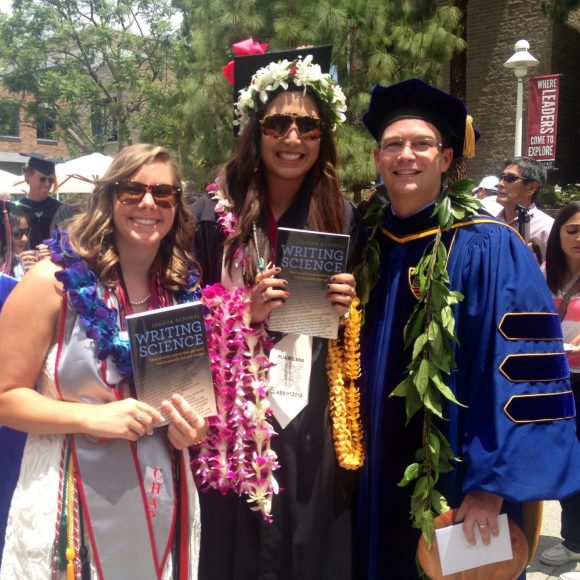
This is easy – Dr. Jason Keller was the most influential person for me at Chapman. He took me into his lab, which was a great experience for me. He set me up with a freshman to mentor; it was my first true mentoring experience. I mentored Chapman alumni Kristin Gabriel – and remember thinking I had no idea what I was doing, but she looked up to me so much. She has a Ph.D. now and seeing her thrive has been so rewarding. Dr. Keller’s lab was always a safe space for equity and diversity, even in 2011 before it was trending. He always treated us like equal adults with respect. He was always positive – and gave us so much independence and trust, things I really came to appreciate when I learned most principal investigators don’t do that. He really set a precedent for how a PI should act. He’s always been supportive and keeps up with his alumni!
Q: Did you have a favorite class you took at Chapman? Why was it your favorite?
I think my favorite class was marine biology with Dr. Wright (sorry Dr. Keller!). The field trips were awesome and super memorable – like collecting sea creatures on the coast and collecting deep water samples from a boat. Dr. Wright would do little demonstrations for us, too- I can still picture the thermocline he created in a fish tank for us. I originally wanted to be a marine biologist, probably because of this class.
Q: What advice can you share with students or recent graduates?
I would encourage current students to get work experience in a lab if they can, even if they don’t think they are interested. The undergraduate research opportunities are one of the best things, in my opinion, about Chapman, and they developed many skills and opened doors for me later on.
Click for more details on Kylle Roy’s episode of Mission Unstoppable
